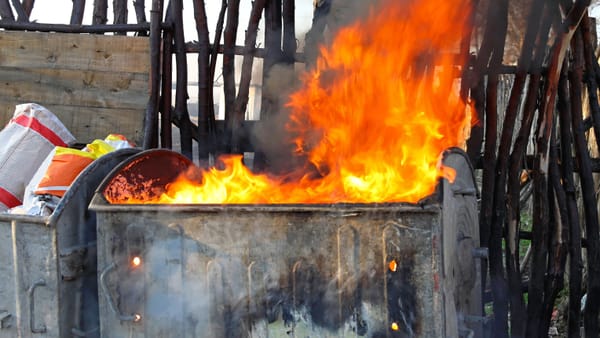The Olympics Should Have a Permanent Home
The current model encourages corruption and leaves cities to construct massive sites for an extremely short term pay off

Perhaps the most depressing thing about this year’s edition of the Summer Olympic Games is the empty stadiums. Normally, the host city enjoys a massive, if temporary, influx of international tourists eager to take in the games and spend cash locally.
But because of the Covid-19 pandemic, Tokyo will not be enjoying those tourist dollars this year. Not even parents of the athletes will be able to be on hand to watch their kids compete. It’s left the Japanese capital city holding the bag after funding expensive temporary sporting facilities and upgrades to their public transit system, without the usual tax payoff.
Tokyo was originally selected to host the 2020 Olympic Games in 2013, seven years before most of the world had ever heard of Covid. Originally, the city estimated that the cost associated with hosting the games would be around $7.5 billion. But actual costs have far exceeded the initial assessment, skyrocketing to an estimated $25 billion, which would make it the most expensive games of all time.
And Tokyo won’t see a dime of tourist spending in return. Journalists covering the games can’t even go out into the city to highlight its prominent cultural and tourist sites. The Tokyo games without fans is an Olympics without a soul, a money pit with no upside.
The cost of actually administering the games clocks in at about $6 billion, and those costs are typically covered by the IOC, but host cities run into more expensive propositions when it comes to constructing sporting stadiums, athlete’s villages, and infrastructure upgrades capable of moving tourists around the city far above the daily capacity needs.
Hosting the games is so expensive that a recent Oxford University analysis put it in the same financial risk category as terrorist attacks, natural disasters, and bankruptcies.

Originally, the founders of the modern Olympics wanted to give different continents and regions of the globe the chance to host and see the games in person. But even that comes with limitations.
The African continent has never hosted an Olympic games, with the 2026 Youth Olympics in Dakar, Senegal set to become the first African city to host an Olympic event. Similarly, the Middle East, Central America, and the Caribbean have also never hosted a games. Olympic hosts are geographically even less diverse than the Olympics’ more corrupt cousin, the FIFA World Cup.
Stories abound of former host cities with expensive and abandoned sports stadiums, and the debt incurred to build those facilities. Some cities manage to repurpose the major structures built for the games. The Los Angeles Coliseum now hosts USC football and the Los Angeles Rams when the team moved from St Louis in 2015. Montreal’s Olympic Stadium served as the home for the Expos major league baseball team for years and years before the franchise moved away.
But what about the lesser facilities? There are 339 medal events spread across 33 sports and 46 disciplines in this year’s games. They all need to play somewhere. Sometimes world sporting bodies will return to former host cities for world championship events, but more likely, these arenas and stadiums will never be used again.
For Tokyo, the stadiums are empty already.

The solution to the problem is to name a permanent host city each for the Summer and Winter Games. A permanent host city would have the incentive to construct and maintain permanent facilities. Infrastructure and public transit investments would make more sense if city officials knew they would need the extra capacity every four years.
Tourist dollars would pour in every four years, turning an event financially akin to a massive forest fire into a more sound investment. I’m not going to go so far as to name potential permanent host cities, though I think Athens, Greece, the ancestral home of the ancient games, and host city for the Summer Games in 2004, would be the most logical and sentimental choice for the summer games.
But most of this discussion is a non-starter. IOC officials like being, at least, wined and dined by government officials around the world, and at most, outright bribed.
In April of last year, it was reported by Reuters that a man named Haruyuki Takahashi handed out $8.2 million from the Tokyo bid committee to help nail down IOC votes.
Corruption is common in the IOC bid selection process, just as it is for the FIFA World Cup. It’s the cream on top of the IOC’s Olympic grift. Every four years, IOC members fatten their wallets, and then sweep into a city, leaving the empty husks of stadia and bittersweet memories in its wake.
The IOC would never give up such a sweet gig voluntarily.




